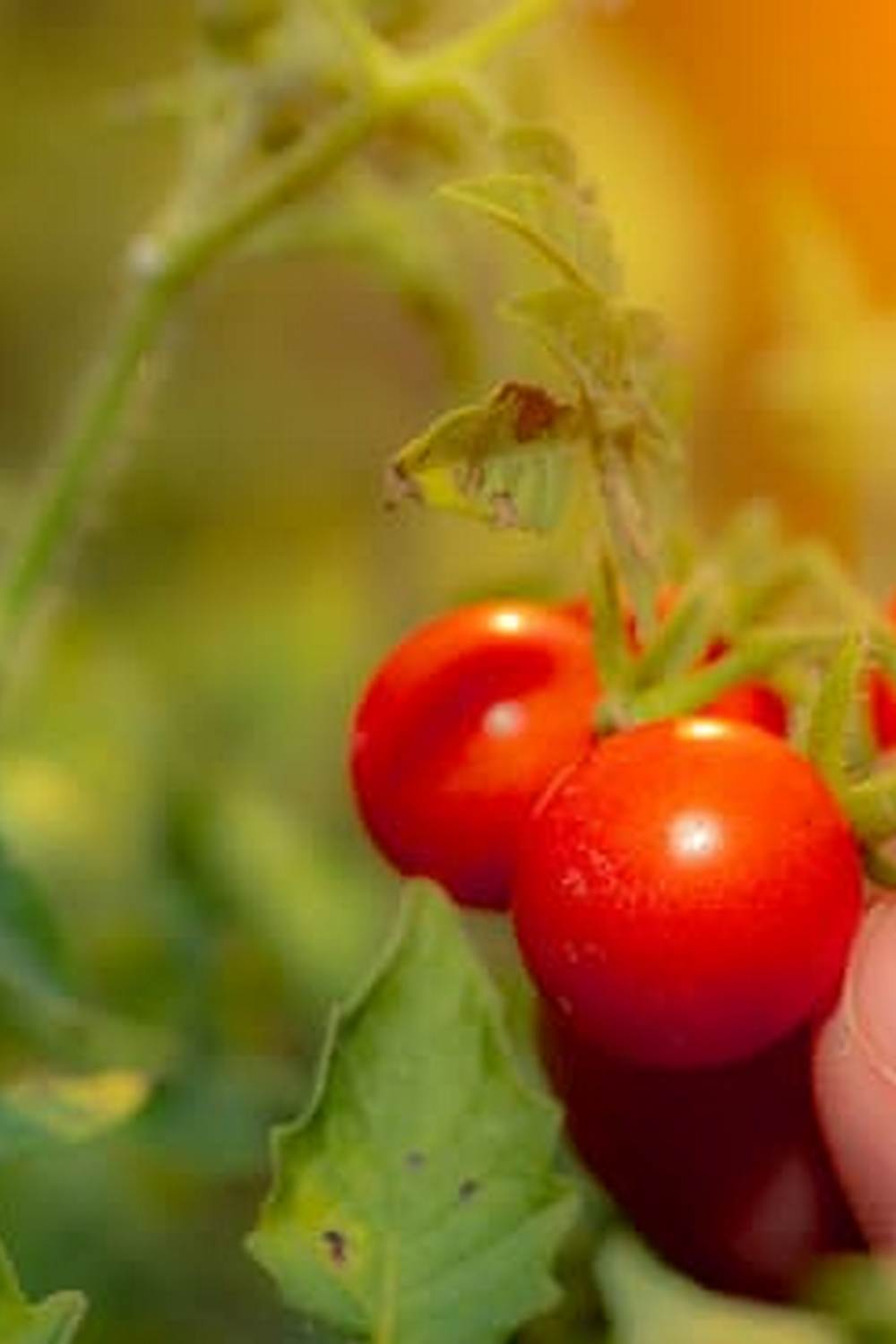Organic vegetable gardening for profit has gained popularity in recent years as more consumers seek out fresh, chemical-free produce. Whether you are a seasoned gardener or just starting out, understanding the ins and outs of organic farming practices can help you maximize your earnings. By focusing on sustainable techniques and environmentally-friendly methods, you can cultivate a successful business while also promoting the health of the planet.
Choosing organic farming methods over conventional ones comes with a plethora of benefits. Not only does it provide healthier options for consumers, but it also helps preserve biodiversity, reduces pollution, and supports sustainable agriculture practices. By avoiding synthetic pesticides and fertilizers, organic farmers can improve soil quality, promote natural pest control, and contribute to overall ecosystem health. These factors not only benefit the environment but also enhance the quality and taste of the produce grown.
When it comes to selecting the right organic vegetables to grow for profit, consider factors such as demand in your local market, climate suitability, and personal preferences. Popular choices among organic farmers include tomatoes, lettuce, peppers, carrots, and cucumbers.
By conducting market research and understanding consumer trends, you can optimize your crop selection to meet customer needs while maximizing profitability. In the following sections, we will delve deeper into planning, designing, maintaining healthy soil naturally,and marketing strategies specifically tailored for success in the world of organic vegetable gardening for profit.
Benefits of Choosing Organic Farming Methods
Organic farming methods offer numerous benefits not only for the environment but also for the profitability of your vegetable garden. By choosing to grow organically, you are investing in the long-term health and sustainability of your soil, plants, and ultimately your business. Here are some key advantages of opting for organic vegetable gardening for profit:
- Healthier Produce: Organic vegetables are grown without synthetic pesticides, herbicides, or fertilizers, making them safer and healthier for consumption. This can be a major selling point for consumers looking for nutritious options.
- Environmental Conservation: Organic farming practices promote biodiversity, protect natural resources such as water and soil, and reduce pollution. By caring for the environment, you are contributing to a more sustainable future.
- Higher Market Value: The demand for organic produce continues to rise as consumers become more conscious of their food choices. This increased demand often translates into higher market prices, allowing you to command a premium for your organically grown vegetables.
In addition to these benefits, organic farming methods can also improve the overall quality of your soil over time. By avoiding chemical inputs that can degrade soil health, you are fostering a nutrient-rich environment that supports vigorous plant growth. This can lead to higher yields and better-tasting vegetables that further enhance the appeal of your produce to customers seeking top-quality ingredients.
By embracing organic vegetable gardening for profit, you are not only cultivating a successful business but also contributing positively to the well-being of both people and the planet. With careful planning and implementation of organic farming techniques, you can create a thriving garden that generates revenue while promoting sustainable agriculture practices.
Selecting the Right Organic Vegetables to Grow
When it comes to organic vegetable gardening for profit, selecting the right vegetables to grow is a crucial decision that can greatly impact your success. Choosing vegetables that are in high demand, have a good market value, and are well-suited to your climate and growing conditions is essential. Here are some tips on selecting the right organic vegetables for your garden:
- Research market demand: Before deciding on which vegetables to grow, research the market demand in your area. Consider factors such as consumer preferences, trends in organic produce sales, and potential competitors.
- Focus on high-value crops: To ensure a profitable return on your investment, focus on growing high-value crops that fetch a good price in the market. Vegetables like heirloom tomatoes, microgreens, and specialty herbs are known for their higher market value.
- Consider your climate and growing conditions: Choose vegetables that are well-suited to your climate and growing conditions. Factors such as sunlight exposure, soil quality, and water availability should influence your decision on which vegetables to plant.
By carefully selecting the right organic vegetables to grow based on market demand, value, and suitability to your location, you can set yourself up for success in your organic vegetable gardening for profit venture. Remember that diversifying your crop selection can also help spread out risks and ensure a steady income throughout the growing season.
Planning and Designing Your Organic Garden for Maximum Profit
Optimizing Garden Layout and Crop Rotation
To maximize profits from your organic vegetable garden, it’s essential to plan the layout strategically. Utilize the available space efficiently by grouping crops according to their sunlight and water requirements. Implementing crop rotation practices can also help improve soil health and reduce pest problems. By rotating crops each season, you can prevent the buildup of soil-borne diseases and pests, leading to better yields in the long run.
Utilizing Companion Planting Techniques
Incorporating companion planting techniques in your organic garden design can further enhance productivity and profitability. Certain plant combinations have been found to benefit each other by deterring pests, improving pollination, and enhancing nutrient uptake. For example, planting marigolds alongside tomatoes can repel nematodes, while growing beans with corn can provide natural trellising support. Experimenting with different companion plant combinations can lead to a more resilient and bountiful harvest.
Implementing Sustainable Irrigation Methods
When planning your organic vegetable garden for maximum profit, it’s important to consider sustainable irrigation methods to conserve water resources and reduce operational costs. Installing drip irrigation systems or utilizing rainwater harvesting techniques can help ensure efficient water usage while promoting healthy plant growth. By prioritizing sustainability in your garden design, you not only save money in the long term but also contribute to environmental conservation efforts that align with organic farming principles.
Tips for Maintaining Healthy Soil and Pest Control Naturally
Organic vegetable gardening for profit requires not only a good selection of crops and effective marketing strategies but also proper maintenance of healthy soil and natural pest control methods. Healthy soil is the foundation of a successful organic garden, as it provides plants with essential nutrients to thrive.
One key aspect of maintaining healthy soil is composting. Composting allows you to recycle kitchen scraps and yard waste into nutrient-rich organic matter that can be used to enrich the soil in your garden.
Another important factor in organic vegetable gardening is practicing crop rotation. Rotating crops helps prevent the buildup of pests and diseases in the soil, reducing the need for harmful pesticides. Additionally, planting beneficial companion plants can aid in deterring pests and attracting beneficial insects that help keep pests under control naturally. For example, planting marigolds around your tomato plants can help deter nematodes, while basil can repel mosquitoes and flies.
When it comes to pest control in organic vegetable gardening, prevention is key. Regularly inspecting your plants for signs of pests and diseases allows you to catch potential issues early on before they become major problems. Instead of resorting to chemical pesticides, consider using natural solutions such as neem oil, insecticidal soap, or homemade garlic spray to effectively manage pests in your garden without harming beneficial insects or contaminating your produce with harmful chemicals.
| Benefit | Data |
|---|---|
| Composting | Recycles kitchen scraps and yard waste into nutrient-rich organic matter. |
| Crop Rotation | Prevents the buildup of pests and diseases in the soil. |
| Companion Planting | Aids in deterring pests and attracting beneficial insects. |
Marketing Strategies for Selling Your Organic Produce
Direct Sales Through Farmers’ Markets
One of the most popular and effective marketing strategies for selling organic produce is through direct sales at farmers’ markets. These markets provide a platform for you to interact directly with customers, build relationships, and showcase the quality of your organic vegetables.
By participating in farmers’ markets, you can establish a loyal customer base who appreciates the freshness and sustainability of your produce. Make sure to have attractive displays, offer samples, and provide information about your organic farming practices to attract and retain customers.
Community Supported Agriculture (CSA)
Another successful marketing strategy for selling organic produce is through Community Supported Agriculture (CSA) programs. With CSA, customers pay upfront to receive a weekly or monthly share of the harvest throughout the growing season. This model not only provides you with financial stability but also fosters a sense of community among members who support sustainable agriculture. By offering different types of CSA memberships or customizable boxes, you can cater to varying preferences and increase your customer base.
Online Platforms and Social Media Marketing
In today’s digital age, leveraging online platforms and social media is essential for reaching a wider audience when selling organic produce. Create a professional website or online store where customers can place orders, learn about your farm, and sign up for newsletters or updates.
Use social media platforms like Instagram, Facebook, and Twitter to engage with potential customers, share photos of your fresh produce, promote special offers or events, and educate followers about the benefits of organic vegetable gardening for profit. Additionally, consider partnering with local food delivery services to offer convenient options for customers to purchase your organic produce online.
Cost Analysis and Budgeting for Organic Vegetable Gardening
When delving into the world of organic vegetable gardening for profit, it is essential to understand the financial aspects involved in running a successful business. Conducting a thorough cost analysis and budgeting can help you make informed decisions, maximize your profits, and manage your resources efficiently. One key advantage of organic farming is that it often requires lower input costs compared to conventional farming methods.
To begin with cost analysis, you should consider all expenses related to your organic vegetable garden, such as seeds, soil amendments, tools, irrigation systems, and labor costs. It is crucial to keep detailed records of these expenses to track your spending accurately. Additionally, factor in overhead costs like marketing materials, packaging supplies, and transportation expenses when selling your produce.
Budgeting plays a vital role in ensuring the financial sustainability of your organic vegetable gardening venture. By setting realistic financial goals and creating a budget that outlines your revenue streams and anticipated expenses, you can stay on track with your financial objectives. Consider seasonal fluctuations in income and expenses while budgeting for your organic garden to prepare for any unforeseen challenges that may arise.
| Aspect | Details |
|---|---|
| Input Costs | Seeds, soil amendments, tools, irrigation systems |
| Overhead Costs | Marketing materials, packaging supplies, transportation expenses |
| Budgeting Tips | Create realistic financial goals and set up a budget based on revenue streams and expenses considering seasonal fluctuations. |
Success Stories From Organic Vegetable Farmers Who Turned a Profit
Organic vegetable gardening has gained popularity in recent years due to the increased demand for healthier and sustainable produce. Many farmers have embraced this method not only for its environmental benefits but also for its potential profitability. Turning a profit from organic vegetable farming requires dedication, hard work, and strategic planning. However, the success stories of those who have managed to do so can serve as inspiration and guidance for aspiring organic farmers.
One such success story is that of Jane Smith, who started her organic vegetable farm from scratch and now supplies fresh produce to local markets, restaurants, and even high-end grocery stores. By focusing on high-demand vegetables like kale, heirloom tomatoes, and microgreens, Jane was able to establish a loyal customer base willing to pay a premium for her organic products.
Through careful planning and marketing efforts, she was able to turn her passion for sustainable farming into a profitable business.
Another inspiring example is the Johnson family, who transformed their traditional family farm into an organic operation after noticing the increasing demand for organic vegetables in their area. By implementing sustainable farming practices, such as crop rotation, cover cropping, and natural pest control methods, they were able to improve soil health and reduce input costs.
As a result, they not only achieved higher yields but also attracted customers interested in supporting local organic farmers. This shift towards organic farming not only benefited their bottom line but also strengthened their connection with the community.
These success stories highlight the potential of organic vegetable gardening for profit when approached with dedication and innovation. By focusing on high-value crops, implementing sustainable practices, and building strong relationships with customers, these farmers were able to overcome challenges and turn their passion for organic farming into a successful business venture.
Their examples serve as valuable lessons for others looking to enter the world of organic farming and demonstrate that with hard work and perseverance, it is possible to earn a living while contributing to a more sustainable food system.
Resources and Tools for Successful Organic Vegetable Gardening Business
In conclusion, starting an organic vegetable gardening business can be a rewarding endeavor that not only benefits the environment but also your wallet. By choosing organic farming methods, you are not only reducing the use of harmful chemicals but also producing healthier and more nutritious produce. Selecting the right organic vegetables to grow is key to maximizing your profits, as certain crops may be more lucrative in your area than others.
Furthermore, planning and designing your organic garden for maximum profit involves careful consideration of factors such as spacing, crop rotation, and companion planting. Maintaining healthy soil through natural methods like composting and crop rotation will ensure the long-term success of your garden while pest control can be achieved organically through techniques like introducing beneficial insects or using neem oil.
Marketing strategies play a crucial role in selling your organic produce and reaching potential customers. Utilizing tools such as social media, farmers’ markets, and community-supported agriculture (CSA) programs can help boost sales and establish a loyal customer base.
Lastly, monitoring your costs and budgeting effectively will ensure that your organic vegetable gardening business remains profitable in the long run. By following these tips and learning from success stories of other organic vegetable farmers, you can create a thriving business that benefits both you and the environment.
Frequently Asked Questions
Is Growing Organic Vegetables Profitable?
Growing organic vegetables can be profitable for farmers who are able to sell their produce at a premium price due to the increased demand for organic products in recent years. While it may require more labor and resources initially, the higher selling price can lead to a profitable venture.
Is Vegetable Gardening Profitable?
Vegetable gardening can be profitable on a smaller scale, especially for individuals who grow their own produce for personal consumption or local sale. The cost savings of growing your vegetables can make it financially rewarding, even if it doesn’t result in significant profits.
Do Organic Farms Make Money?
Organic farms have the potential to make money through various channels such as selling organic produce directly to consumers, restaurants, or retailers. While there may be higher upfront costs associated with obtaining organic certifications and maintaining sustainable practices, the market demand for organic products can result in profitability for organic farms in the long run.

If you’re looking to get into vegetable gardening, or are just looking for some tips on how to make your current garden better, then you’ve come to the right place! My name is Ethel and I have been gardening for years. In this blog, I’m going to share with you some of my best tips on how to create a successful vegetable garden.





